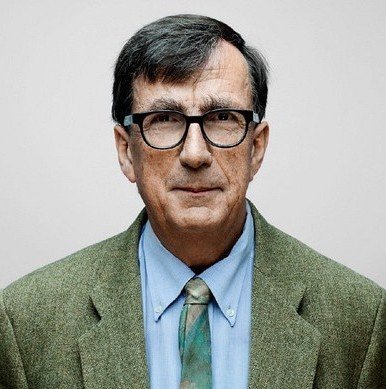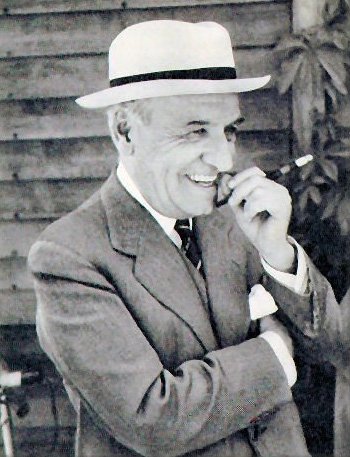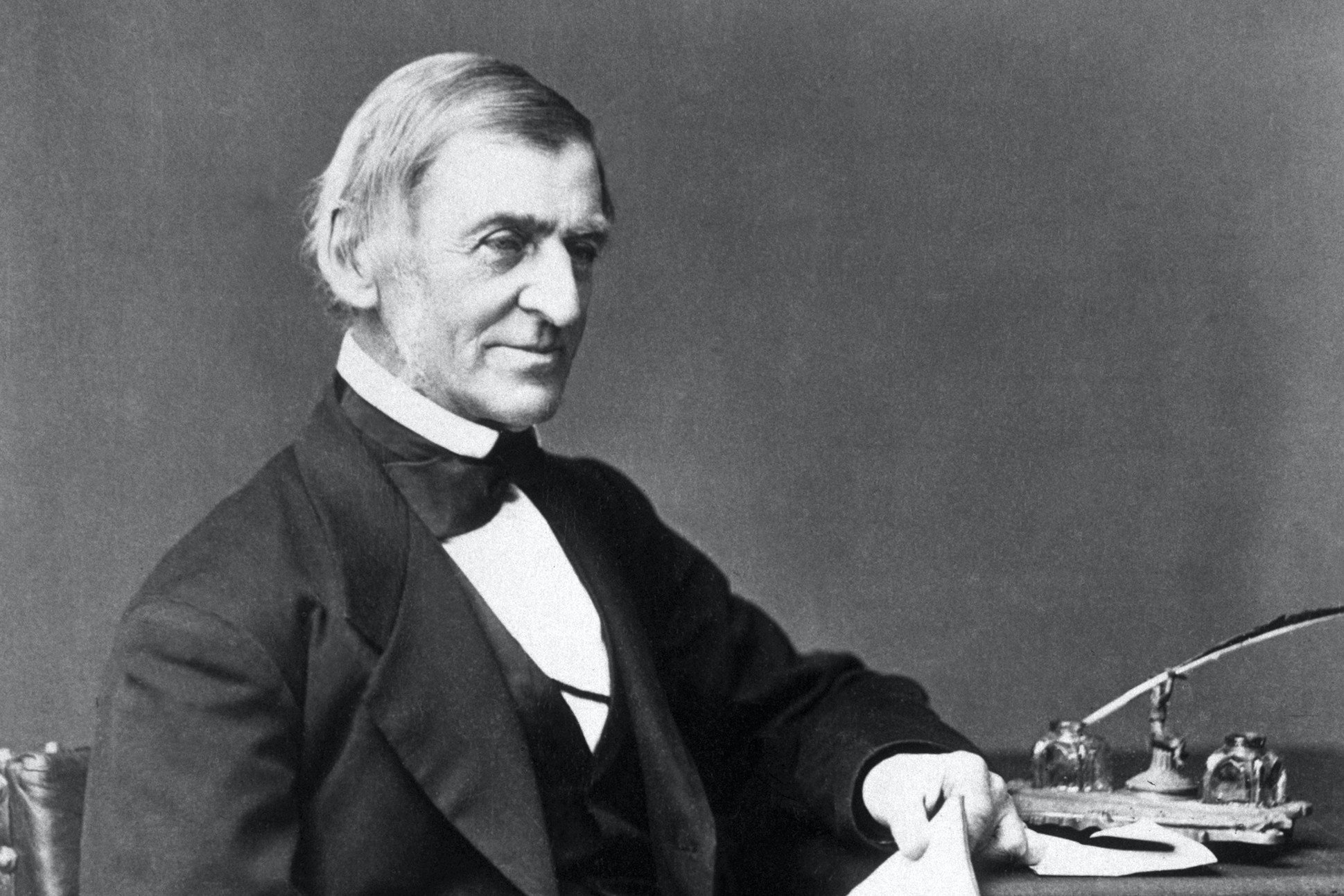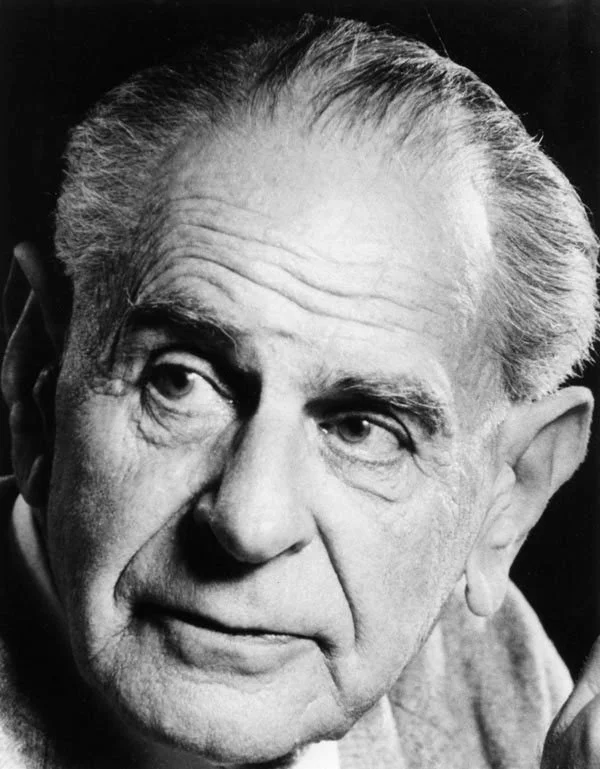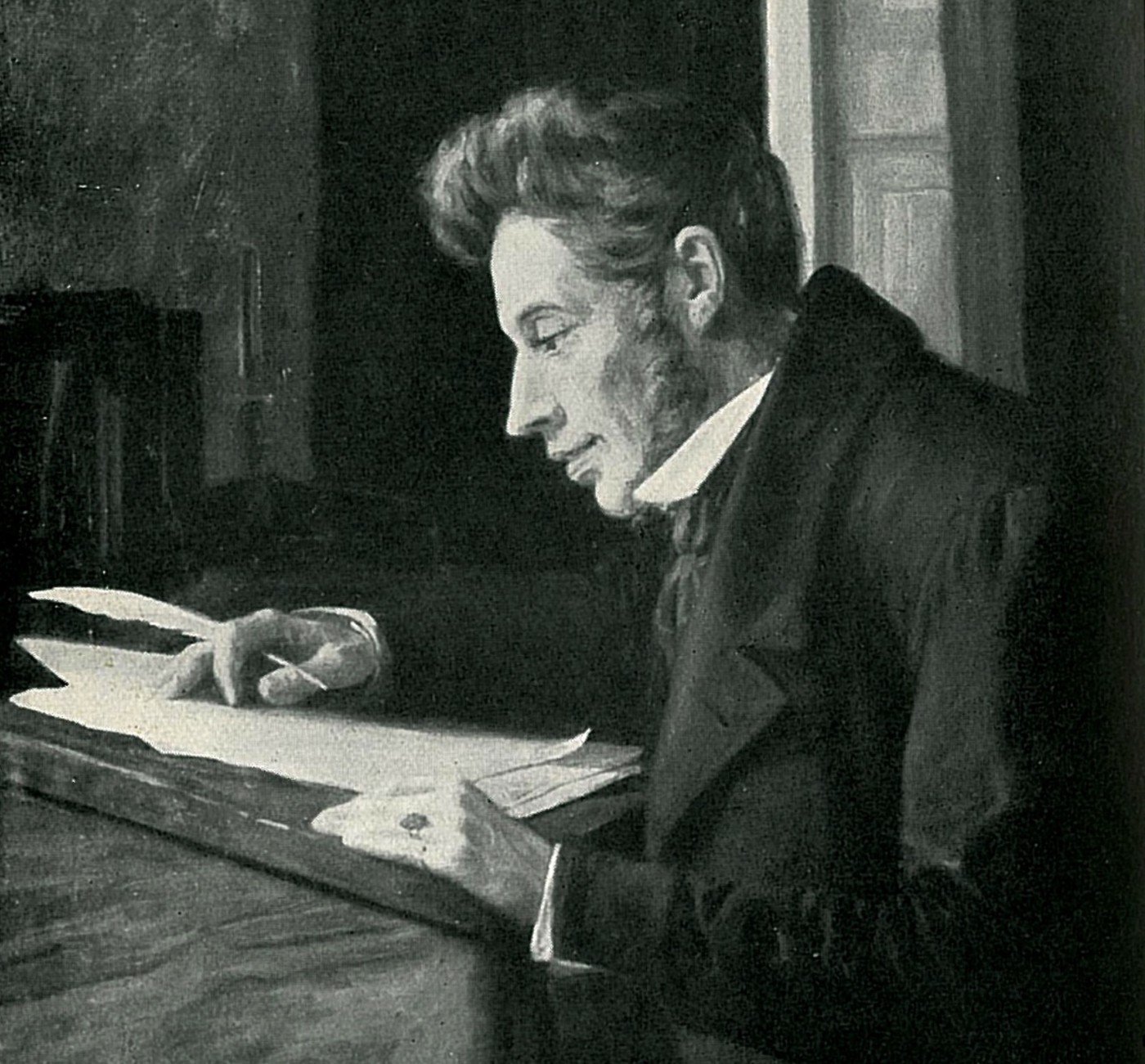Episode #177 - Susan Sontag - Do you speak the language of pictures and videos?
Susan Sontag - Do you speak the language of pictures and videos?
This episode opens with Susan Sontag’s early encounter with Holocaust photographs—an experience she described as a turning point in her life. From there, it explores her argument that modern people have a complicated and often uncritical relationship with images. Sontag urges us to recognize how photographs and videos can both reveal and distort reality, shaping emotion, memory, and even moral response. She challenges the idea that simply seeing images is equivalent to understanding or action, warning instead of a culture trapped in passive consumption and nostalgia.
Further Reading:
The Parrot and the Igloo: Climate and the Science of Denial by David Lipsky (2023)
The Uninhabitable Earth: Life After Warming by David Wallace-Wells (2019)
This Changes Everything: Capitalism vs. The Climate by Naomi Klein (2014)
See the full transcript here.
Thank you to everyone who makes this podcast a possibility in the future.
I could never do this without your support! :)
Episode #176 - Susan Sontag - Do you criticize yourself the way you criticize a movie?
Susan Sontag - Do you criticize yourself the way you criticize a movie?
In this episode, we explore how Susan Sontag—a fierce cultural critic inspired by Simone Weil—challenged the modern obsession with interpretation, both in psychoanalysis and in art. Sontag admired Weil’s uncompromising stance against the status quo and echoed that same resistance by criticizing how analysis can distance us from the immediacy of lived experience. She warned that filtering emotions and art through normative theories often alienates people from their own reality, granting undue power to experts while reducing complex experiences to predictable patterns. Instead, Sontag called for an "erotics of art"—a renewed way of engaging with form and style that invites visceral, transformative encounters rather than detached interpretation. Through this lens, she argued, we open ourselves to art—and life—in ways that allow discomfort, openness, and even confusion to shape us. The episode closes by linking this sensibility to Sontag’s belief that truth demands sacrifice, and that progress requires voices from the margins, not just those who play by the rules of reason.
Further Reading:
The Parrot and the Igloo: Climate and the Science of Denial
David Lipsky, 2023This Changes Everything: Capitalism vs. The Climate
Naomi Klein, 2014The Uninhabitable Earth: Life After Warming
David Wallace-Wells, 2019
See the full transcript here.
Thank you to everyone who makes this podcast a possibility in the future.
I could never do this without your support! :)
Episode #175 - Simone Weil - Vessels of God
Simone Weil - Vessels of God
This episode explores Simone Weil’s view on self-transformation, contrasting the Western emphasis on willpower and discipline with her deeper focus on cultivating attention. While will is effective for physical action and routine habit-building, Weil argues it falls short when it comes to moral clarity, inspiration, and spiritual depth. Attention, for Weil, is not passive but a disciplined openness to truth, beauty, and obligation—qualities she sees as reflections of a higher moral order, which she calls God. Crucially, Weil believes that goodness only becomes real when individuals act as vessels for this universal good, through conscious participation in the world. The episode also outlines three pathways to developing attention—love of beauty, love of neighbor, and religious or transcendent experience—and emphasizes the need for humility and lucid thought as safeguards against ego-driven moral blindness, especially in times of collective conflict.
Further Reading:
Waiting for God by Simone Weil (1951)
Gravity and Grace by Simone Weil (1952)
The Ethics of Attention: Engaging the Real with Iris Murdoch and Simone Weil by Silvia Caprioglio Panizza (2022)
See the full transcript here.
Thank you to everyone who makes this podcast a possibility in the future.
I could never do this without your support. :)
Episode #174 - Simone Weil - The Mathematician
Simone Weil - The Mathematician
Key Takeaways
The Mathematician's Dilemma: Simone Weil uses a thought experiment about a mathematician punished for solving math problems with even-numbered solutions to illustrate the moral and intellectual challenges in modern society. It reflects the social costs of seeking truth over conformity, where critical thinking or ethical concerns often clash with societal or institutional norms.
Social Costs of Truth-Seeking: The episode discusses various social costs incurred in the pursuit of truth. Examples include the suppression of critical thinking in jobs for self-preservation, the education system's focus on finding correct answers over truth, and the pressures to conform to collective ideologies, such as political or religious groups.
Shift in Understanding Reality: Weil argues that a historical shift from geometric to algebraic expression in academia has led to an abstract, theoretical understanding of reality, overshadowing practical, real-world considerations. This shift impacts how social systems are understood and managed, often neglecting the real-life consequences and limitations.
Simone Weil's Call for a New Form of Attention: The episode emphasizes Weil's advocacy for a new kind of attention that seeks universality and truth over personal biases and particulars. This form of attention could lead to spiritual transformation, allowing individuals to see beyond the confines of collective thought and towards a more universal understanding of human obligations and connections.
Recommended Reading
Waiting for God by Simone Weil: A collection of letters and essays offering insights into Weil's thoughts on religious experience and the nature of God.
Gravity and Grace by Simone Weil: This book explores the dichotomy between the material and spiritual realms, delving into Weil's unique blend of philosophy and mysticism.
The Need for Roots by Simone Weil: Weil's posthumously published work that argues for the importance of spiritual and cultural roots in a healthy society.
Additional Reading List: For a more extensive reading list on Simone Weil’s work, including a suggested order for reading, visit the Instagram post at this link.
See the full transcript here.
Thank you to everyone who makes this podcast a possibility in the future.
I could never do this without your support. :)
Episode #173 - Simone Weil - The Need For Roots
Simone Weil - The Need For Roots
This episode explores the moral and philosophical journey of Simone Weil, focusing on her belief that real understanding and ethical clarity come not from abstract theorizing, but from firsthand experience and radical empathy. Through personal anecdotes and reflections on Weil’s life—her time working in factories, her thoughts on colonialism, and her critique of human rights discourse—the episode highlights Weil’s emphasis on the “needs of the soul,” such as order, liberty, and rootedness, as essential to human flourishing. It also introduces her concept of decreation, a spiritual practice of renouncing the ego to cultivate a new kind of attention—one capable of truly seeing others in their sacred, impersonal humanity. Rather than advocating for political revolution, Weil calls for a transformation in how we perceive and respond to suffering, urging a spiritual revolution rooted in compassion, attention, and lived experience.
Recommended Reading
"Simone Weil: A Brief Introduction" by Stephen Plant (2007)
"Simone Weil (Penguin Lives)" by Francine Du Plessix Gray (2001)
"Waiting for God" by Simone Weil (1951)
See the full transcript here.
Thank you to everyone who makes this podcast a possibility in the future.
I could never do this without your support! :)
Episode #172 - Simone Weil - Attention
Simone Weil - Attention
This episode introduces Simone Weil as a rare example of a philosopher whose life embodied her ideas, emphasizing her unwavering commitment to living by the values she believed in. Beginning with her academic achievements at the École Normale Supérieure—where she outscored Simone de Beauvoir—the episode highlights key moments of Weil’s life that set her apart: her refusal to eat more than those in the French resistance, her time working in a factory to understand labor firsthand, and her participation in the Spanish Civil War. Central to her philosophy is the concept of “attention,” a practice of open, non-possessive awareness that transforms how we relate to ourselves, others, and the world. Weil believed that true education and ethical progress arise not from seeking answers but from cultivating the right orientation toward experience. The episode sets the stage for a deeper exploration of Weil’s ideas by contrasting political revolution with spiritual transformation, urging listeners to consider the profound impact of intentional attention in both personal and collective life.
Recommended Reading
The Greatest Benefit to Mankind: A Medical History of Humanity – Roy Porter (1997)
The History of Medicine: A Very Short Introduction – William Bynum (2008)
The Cambridge History of Medicine – Roy Porter (2006)
See the full transcript here.
Thank you to everyone who makes this podcast a possibility in the future.
I could never do this without your support! :)
Episode #171 - Guy Debord - The Society of the Spectacle
Guy Debord - The Society of the Spectacle
In this episode, the podcast explores Guy Debord’s The Society of the Spectacle, a 1967 critique of modern consumer culture that suggests we unknowingly live within a kind of economic religion—one where appearances have come to matter more than substance. Drawing on Marx’s idea of commodity fetishism and building on Feuerbach’s observations about illusion and sacredness, Debord argues that our lives are increasingly shaped by representations rather than direct experience. Through consumerism, media, and social performance, individuals are alienated not only from the production of goods, but from each other, from reality, and ultimately from themselves. The spectacle, as Debord defines it, is not just media or advertising—it is the entire system of mediated social relations that maintains the status quo by prioritizing visibility, image, and symbolic value over truth and lived experience. The episode invites listeners into a thought experiment: what if the structures we inhabit are so immersive that even realizing their influence doesn’t free us from them—but only reveals how deeply embedded we are?
Further Reading:
The Parrot and the Igloo: Climate and the Science of Denial by David Lipsky (2023)
The Uninhabitable Earth: Life After Warming by David Wallace-Wells (2019)
This Changes Everything: Capitalism vs. The Climate by Naomi Klein (2014)
See the full transcript here.
Thank you to everyone who makes this podcast a possibility in the future.
I could never do this without your support! :)
Episode #170 - Albert Camus - The Fall
Albert Camus - The Fall
In this episode, Camus’s The Fall is explored as a cautionary tale for those seeking to build personal meaning in a world without intrinsic morality or divine authority. Through the confessions of the character Jean-Baptiste Clamence, Camus dissects the self-deceptions modern individuals adopt to appear virtuous while avoiding responsibility and judgment. The narrative illustrates how Clamence’s performative morality crumbles under the weight of real-life tests, exposing his hypocrisy and triggering a psychological unraveling. His eventual strategy—to become a “judge-penitent” who preemptively condemns himself in order to freely condemn others—serves as a metaphor for the duplicity and evasions common in modern society. Camus warns that crafting and living by a value system requires not just intellectual effort, but the courage to confront our own contradictions, guilt, and the inevitable judgment of others. Rather than retreat into moral theater or victimhood, Camus suggests that integrity comes from embracing these burdens honestly, even if it means living without the comforting illusion of innocence.
Further Reading:
The Parrot and the Igloo: Climate and the Science of Denial by David Lipsky (2023)
The Uninhabitable Earth: Life After Warming by David Wallace-Wells (2019)
This Changes Everything: Capitalism vs. The Climate by Naomi Klein (2014)
See the full transcript here.
Thank you to everyone who makes this podcast a possibility in the future.
I could never do this without your support! :)
Episode #169 - Bruno Latour - We Have Never Been Modern
Bruno Latour - We Have Never Been Modern
In this episode, we trace the origins and development of the "ethics of care," beginning with Carol Gilligan’s challenge to Lawrence Kohlberg’s dominant theory of moral development in the 1970s. While Kohlberg’s framework privileged abstract, justice-based reasoning—exemplified by boys like Jake in the Heinz dilemma—Gilligan observed that girls like Amy approached morality relationally, emphasizing care, context, and the preservation of relationships. Her critique revealed how traditional ethical models overlooked voices shaped by caregiving roles and social interdependence. Drawing from thinkers like Virginia Held and Joan Tronto, the episode explores how care ethics redefines moral subjectivity, not as detached and rational, but as relational, emotionally attuned, and action-based. It introduces five core virtues—attentiveness, responsibility, competence, responsiveness, and plurality—as essential to developing moral maturity through care. More than a “women’s ethics,” care ethics offers a transformative alternative to justice-based frameworks, calling for a broader, more inclusive moral lens—one rooted in human connection and the maintenance of the world we live in.
Further Reading:
The Parrot and the Igloo: Climate and the Science of Denial by David Lipsky (2023)
The Uninhabitable Earth: Life After Warming by David Wallace-Wells (2019)
This Changes Everything: Capitalism vs. The Climate by Naomi Klein (2014)
See the full transcript here.
Thank you to everyone who makes this podcast a possibility in the future.
I could never do this without your support! :)
Episode #168 - Introduction to an Ethics of Care
Introduction to an Ethics of Care
In this episode, the origins and development of the ethics of care are traced through the work of Carol Gilligan, who challenged traditional models of moral development dominated by male-centric perspectives. Reacting to Lawrence Kohlberg’s scale of moral reasoning—which favored abstract principles like justice—Gilligan argued that these models overlooked the relational and context-sensitive ways in which many women navigate ethical dilemmas. Through her analysis of the Heinz dilemma and the differing responses of Jake and Amy, Gilligan introduced a new moral lens centered on empathy, interdependence, and care. This perspective critiques the notion of the autonomous, rational moral subject and instead emphasizes attentiveness, responsibility, competence, responsiveness, and plurality as foundational virtues. By elevating care from the private to the public sphere, Gilligan and philosophers like Virginia Held and Joan Tronto assert that caring is not just a feminine trait or domestic concern—it’s a vital moral framework with the potential to reshape society’s ethical priorities on a systemic level.
Further Reading:
The Parrot and the Igloo: Climate and the Science of Denial by David Lipsky (2023)
The Organized Mind: Thinking Straight in the Age of Information Overload by Daniel J. Levitin (2014)
Incognito: The Secret Lives of the Brain by David Eagleman (2011)
See the full transcript here.
Thank you to everyone who makes this podcast a possibility in the future.
I could never do this without your support! :)
Episode #167 - Jose Ortega - Revolt of the Masses
Jose Ortega - Revolt of the Masses
In this episode, the discussion builds on José Ortega y Gasset’s warning about the rise of the “mass man”—a psychological type marked by self-satisfaction, cultural disengagement, and a lack of historical awareness. Ortega argues that in modern democracies, the mass mentality, born into unprecedented freedom, often rejects the responsibility that comes with it, flattening out qualitative distinctions between perspectives, experiences, and expertise. This has led to a culture where all opinions are treated as equally valid, even when they lack depth or effort. Ortega traces this shift to the rise of hyper-democracy, mass culture, and a rejection of historical consciousness, which he sees as essential to understanding oneself and the human condition. He contrasts this with a self-imposed aristocracy—not of wealth or status, but of character and intellectual effort—defined by the pursuit of self-refinement, historical understanding, and moral obligation. For Ortega, preserving equality requires recognizing and honoring those who strive for excellence, rather than celebrating mediocrity.
Further Reading:
The Revolt of the Masses by José Ortega y Gasset (1930)
The Crowd: A Study of the Popular Mind by Gustave Le Bon (1895)
The Revolt of the Public and the Crisis of Authority in the New Millennium by Martin Gurri (2014)
See the full transcript here.
Thank you to everyone who makes this podcast a possibility in the future.
I could never do this without your support! :)
Episode #166 - Jose Ortega - Circumstance
Jose Ortega - Circumstance
In this episode, we explore the philosophy of José Ortega y Gasset, a thinker who resisted narrow labels like existentialist or phenomenologist, and instead pursued a broader vision: rehumanizing our understanding of reality. Ortega challenges traditional dualisms—especially Descartes’ mind-body split—and instead argues that human existence is inseparable from the circumstances it inhabits. His famous phrase, “I am I and my circumstance,” encapsulates this view: we are not isolated minds navigating the world, but unified beings shaped by, and responsible for, the historical, social, and physical conditions we inherit. Ortega’s perspectivism acknowledges the limits of human understanding while rejecting the idea that all perspectives are equally valid. Instead, he calls for active engagement with our circumstances—seeking truth through a multiplicity of viewpoints and continuous reexamination. For Ortega, philosophy is not a passive discipline, but a form of “theoretical heroism,” demanding both humility and courage as we forge meaning in a world of uncertainty.
Further Reading:
The Revolt of the Masses – José Ortega y Gasset (1994)
What Is Philosophy? – José Ortega y Gasset (1964)
Meditations on Quixote – José Ortega y Gasset (1963)
See the full transcript here.
Thank you to everyone who makes this podcast a possibility in the future.
I could never do this without your support! :)
Episode #165 - Ralph Waldo Emerson - Nature and Other Things
Ralph Waldo Emerson - Nature and Other Things
This episode explores Ralph Waldo Emerson’s essay Nature, framing it as a response to humanity’s long-standing disunity and overreliance on inherited narratives. Emerson argues that true insight and moral clarity begin not through books or societal structures, but through a personal, intuitive relationship with Nature—defined broadly as everything outside the self. The episode outlines how most people project learned abstractions onto their experience of nature, preventing them from perceiving it freshly and honestly. By shedding these inherited filters and approaching nature with childlike attention, individuals can access a deeper unity that connects all life. Nature is portrayed as a provider, healer, teacher, and even a moral guide—offering not just material support but spiritual truths. Emerson warns, however, that science alone cannot reveal this wisdom; nor can endless study without action. Ultimately, the episode presents Emerson’s belief that creating new ideas, grounded in individual experience and intuitive understanding, is essential for personal growth and societal progress.
Further Reading:
Nature and Selected Essays by Ralph Waldo Emerson, edited by Larzer Ziff (2003)
Self-Reliance by Ralph Waldo Emerson, illustrated by Jessica Helfand (2021)
The Philosophy of Ralph Waldo Emerson by Joseph Urbas (2020)
See the full transcript here.
Thank you to everyone who makes this podcast a possibility in the future.
I could never do this without your support! :)
Episode #164 - Ralph Waldo Emerson - Self Reliance
Ralph Waldo Emerson - Self Reliance
This episode introduces Ralph Waldo Emerson’s Self-Reliance as a response to the philosophical dilemma of uncertainty and the modern tendency toward conformity. Set in a young America still defining its identity, Emerson critiques blind allegiance to external authorities—religious, political, or intellectual—and argues for a deeper, inward turn toward individual intuition. Rather than mimicking inherited dogmas, Emerson believes self-trust is the key to truth and moral development. Through vivid examples and challenges to Enlightenment ideals like consistency, the episode explores Emerson’s belief in the “Oversoul,” a unifying spiritual intelligence accessible through personal experience. Ultimately, Self-Reliance becomes a call to action—not just to think differently, but to live courageously as a true non-conformist, shaping the world through authentic, self-directed insight.
Further Reading:
Self-Reliance and Other Essays by Ralph Waldo Emerson (1841)
The Annotated Emerson by Ralph Waldo Emerson, edited by David Mikics (2012)
Emerson: The Mind on Fire by Robert D. Richardson (1995)
See the full transcript here.
Thank you to everyone who makes this podcast a possibility in the future.
I could never do this without your support! :)
Episode #163 - The Creation of Meaning - Escape From Evil
The Creation of Meaning - Escape From Evil
This episode explores Ernest Becker’s theory that both religion and culture function as elaborate systems designed to manage our awareness of mortality. Rather than treating them as opposites, Becker sees them as intertwined tools for “death denial,” offering individuals a sense of symbolic immortality through cultural projects or by attaching meaning to what he calls transference objects—leaders, careers, romantic partners, even material possessions. He argues that our symbolic identities are constructed from illusions, and when these illusions are threatened, people often respond with hostility, even violence, to protect their sense of permanence. This leads Becker to the question of human evil—not just why it exists, but why it often feels good to those who commit it. His concept of “anthropodicy” shifts the focus from divine justification to understanding how fear and symbolic conflict drive human cruelty. Yet Becker also gestures toward hope through the idea of transcendence: by moving beyond cultural heroism and connecting with what he calls the “invisible,” individuals may discover a deeper, freer way of living. The episode closes by linking Becker’s vision to similar insights from Camus and Kierkegaard, suggesting that a thoughtful relationship with death can reveal meaning, not through certainty, but through presence, empathy, and an honest confrontation with life’s limits.
Further Reading:
The Denial of Death by Ernest Becker (1973)
Escape from Evil by Ernest Becker (1985)
Legacy: The Belief in Immortality and the Logic of Culture by Robert N. Bellah (2011)
See the full transcript here.
Thank you to everyone who makes this podcast a possibility in the future.
I could never do this without your support! :)
Episode #162 - The Creation of Meaning - The Denial of Death
The Creation of Meaning - The Denial of Death
This episode, part of the Creation of Meaning series, explores Ernest Becker’s The Denial of Death as a scientific lens through which to understand the human struggle for significance. At the center is the recurring protagonist—someone navigating the abundance of Western modernity while starving for purpose and permanence. Becker frames this existential tension as a duality between our symbolic capacity for meaning-making and our biological vulnerability to death. Unable to live in constant awareness of mortality, humans engage in “immortality projects”—cultural roles and value systems that offer symbolic endurance. Through these roles, we deny death by constructing identities that feel significant and lasting. But Becker suggests that even these identities are illusions—necessary ones, crafted not to deceive but to help us function. Culture, like religion, offers structure, comfort, and purpose, blurring the line between secular and sacred. Rather than condemning this process, Becker invites us to understand it—to see through the illusions without discarding them, and to live meaningfully alongside the fear they help manage.
Further Reading:
The Denial of Death by Ernest Becker (1973)
Staring at the Sun: Overcoming the Terror of Death by Irvin D. Yalom (2008)
Free Yourself from Death Anxiety: A CBT Self-Help Guide for a Fear of Mortality by Rachel Menzies and David Veale (2022)
Thank you to everyone who makes this podcast a possibility in the future.
I could never do this without your support! :)
Episode #161 - Karl Popper - The Open Society and Its Enemies
Karl Popper - The Open Society and Its Enemies
This episode explores Karl Popper’s The Open Society and Its Enemies as a response to the philosophical roots of fascism and totalitarianism. Rather than reacting only to the politics of his time, Popper looks back to thinkers like Plato, Hegel, and Marx to show how well-meaning ideas—like holistic thinking and historicism—can pave the way for authoritarian control. The episode highlights Popper’s belief that true progress comes not from utopian visions, but from an open society grounded in individual freedom, critical thinking, and gradual, trial-and-error reform. Through concepts like “the strain of civilization,” negative utilitarianism, and piecemeal social engineering, Popper offers a compelling alternative to political dogma—one that values the reduction of suffering over the pursuit of abstract ideals.
Further Reading:
The Open Society and Its Enemies by Karl R. Popper (1945)
On Tyranny: Twenty Lessons from the Twentieth Century by Timothy Snyder (2017)
Twilight of Democracy: The Seductive Lure of Authoritarianism by Anne Applebaum (2020)
See the full transcript here.
Thank you to everyone who makes this podcast a possibility in the future.
I could never do this without your support! :)
Episode #160 - The Creation of Meaning - Kierkegaard - Silence, Obedience and Joy
The Creation of Meaning - Kierkegaard - Silence, Obedience and Joy
In this episode, we start with a story of dismissing Kierkegaard. Through Kierkegaard’s The Lily of the Field and the Bird of the Air, the episode explores how silence, obedience, and joy can ground us beyond the realm of constant comparison, striving, and doubt—what Kierkegaard calls the “realm of human concern.” By turning to seemingly unlikely teachers like a flower and a bird, Kierkegaard invites listeners to recognize a part of themselves that exists outside the noise of modern life. These discourses challenge us to stop overthinking, remain faithful to our values, and find presence in simply being—without always needing a why.
Further Reading:
The Lily of the Field and the Bird of the Air: Three Godly Discourses by Søren Kierkegaard, translated by Bruce H. Kirmmse (2016)
Kierkegaard and Spirituality: Accountability as the Meaning of Human Existence by C. Stephen Evans (2021)
Philosopher of the Heart: The Restless Life of Søren Kierkegaard by Clare Carlisle (2019)
See the full transcript here.
Thank you to everyone who makes this podcast a possibility in the future.
I could never do this without your support! :)
Episode #159 - The Creation of Meaning - Nietzsche - Amor Fati
The Creation of Meaning - Nietzsche - Amor Fati
In this episode of the series on the creation of meaning, the focus turns to Nietzsche’s rejection of fixed moral systems and his embrace of personal responsibility in value formation. Rather than offering a rigid framework, Nietzsche presents tools and perspectives—like amor fati, the love of one’s fate—to help individuals affirm life in its entirety, including suffering and desire, as necessary parts of existence. He critiques the traditional attitude of negation—common in both religion and rational pessimism—that sees desire and suffering as flaws to be overcome through guilt or denial. Instead, he proposes a psychological shift toward affirmation, where meaning is built through engaging with life as it is, rather than waging war against it. The episode also explores Nietzsche’s commitment to moral pluralism over monism, arguing that values like truth and art serve best when held in tension, not hierarchy. Ultimately, Nietzsche encourages listeners to view resistance—whether internal or external—not as an obstacle, but as the very condition that makes growth and meaning possible.
Further Reading:
Nietzsche on Morality by Brian Leiter (2015)
Amor Fati: Eternal Procession in Emerson and Nietzsche by Caroline Kelley (2021)
Beyond Good and Evil by Friedrich Nietzsche (1886)
See the full transcript here.
Thank you to everyone who makes this podcast a possibility in the future.
I could never do this without your support! :)
Episode #158 - The Creation of Meaning - Nietzsche - The Ascetic Ideal
The Creation of Meaning - Nietzsche - The Ascetic Ideal
This episode explores how feelings like revenge, guilt, and compassion—often seen as natural or moral instincts—can be better understood through the philosophies of Simone de Beauvoir and Friedrich Nietzsche. It questions whether these emotions are biologically embedded or socially inherited, ultimately arguing that they reflect deeper cultural and psychological patterns shaped over time. Through Beauvoir's essay on revenge and Nietzsche’s Genealogy of Morality, the episode highlights how moral frameworks like guilt and self-sacrifice may not actually serve victims or justice but often reinforce inherited systems of control and denial. Nietzsche’s critique of compassion and truth challenges the listener to reconsider whether these values are life-affirming or simply another form of moral absolutism that denies the unstable, ever-changing nature of reality. Rather than offering a replacement system, the episode ends by inviting reflection on what it would mean to build a life-affirming philosophy grounded in acceptance rather than renunciation.
Further Reading:
Nietzsche on Morality – Brian Leiter (2002)
The Ethics of Ambiguity – Simone de Beauvoir (1947)
The Elements of Moral Philosophy – James Rachels and Stuart Rachels (1986)
See the full transcript here.
Thank you to everyone who makes this podcast a possibility in the future.
I could never do this without your support! :)









